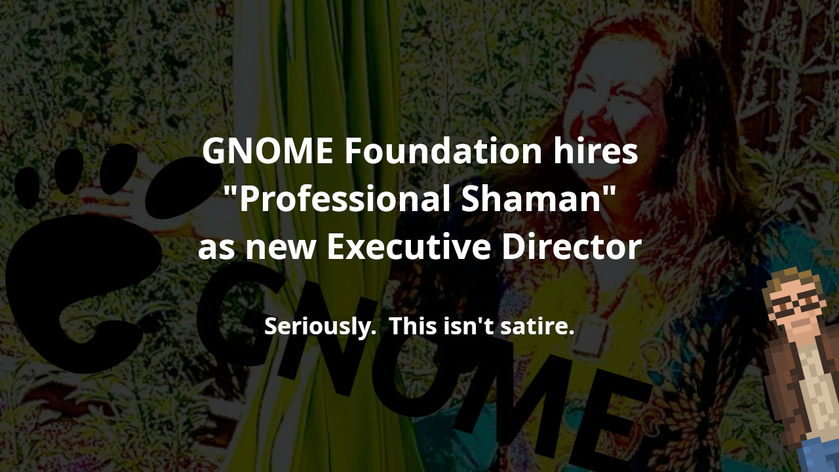1
you are viewing a single comment's thread
view the rest of the comments
view the rest of the comments
this post was submitted on 19 Oct 2023
1 points (50.9% liked)
Linux
56868 readers
617 users here now
From Wikipedia, the free encyclopedia
Linux is a family of open source Unix-like operating systems based on the Linux kernel, an operating system kernel first released on September 17, 1991 by Linus Torvalds. Linux is typically packaged in a Linux distribution (or distro for short).
Distributions include the Linux kernel and supporting system software and libraries, many of which are provided by the GNU Project. Many Linux distributions use the word "Linux" in their name, but the Free Software Foundation uses the name GNU/Linux to emphasize the importance of GNU software, causing some controversy.
Rules
- Posts must be relevant to operating systems running the Linux kernel. GNU/Linux or otherwise.
- No misinformation
- No NSFW content
- No hate speech, bigotry, etc
Related Communities
Community icon by Alpár-Etele Méder, licensed under CC BY 3.0
founded 6 years ago
MODERATORS

I still don’t understand why a software project requires anyone who is not writing software or doing UI/UX.
"I don't understand why a business needs people that aren't on the assembly line." - You, showing the world your ass.
So you want software developers to spend less time building the software so they can run a nonprofit too? Do you think all the conferences, sites, fundraising, marketing, extensive help docs, bug processing, and community engagement is all something that can just be done on the side?
Just ask any software dev working st any of these foundations. They don't want to do any of the business-side work. Or, if they do, they certainly don't want to do it alone. If they were alone in it, they wouldn't have time to write code.
BS we don't need.
Without those things open source would slowly die. All of those are about getting more users for products, getting funding to make them happen, but more importantly, inspiring the next group of contributors.
Open source doesn't just appear out of thin air. It costs money and time. People need to care about it.
Without users, a project is just a hobby and unlikely to persist long term. Without funding, contributors are forced to abandon for jobs to out food on the table. Without the next group of contributors to pass the torch onto, projects die.
So, let's go big picture here. Let's get away from the specifics. Let's even assume that she's a bad person to put in place, or that her office is unnecessary.
I'm not donating money to the GNOME Foundation. It's not my money at stake. Unless you're a donor, it's not your money at stake.
I'm not familiar with the GNOME Foundation, but I can tell you right now that it doesn't get exclusive control of GNOME. They don't hold IP rights over GNOME software. If people and companies don't like where they're going, they can ignore them.
I think that it was Linus Torvalds who once pointed out that his only authority derives from the fact that people generally felt that he was doing a good job, and if that changed, he wouldn't have that authority.
Even if they fund work on a project, you want to fork an open-source project, you can fork it. Wouldn't be the first time that a fork has supplanted a parent project.
Someone has to direct them, and have a final say in which features get implemented and which do not. Otherwise the project will go nowhere.
Developers don't necessarily make the best fundraisers, auditors, accountants, human resource managers, legal advisors, or any of a hundred other disciplines involved in running a large organisation.
This particular person seems to have extensive experience managing large non-profits and membership organisations; which is exactly what the GNOME Foundation is. There's no expectation that everyone on the board of directors will know how to cut code...